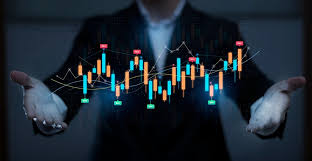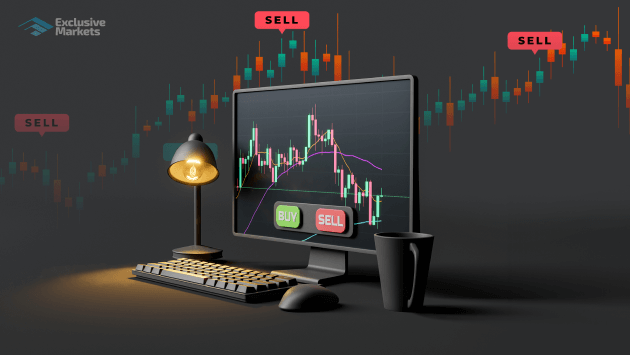
Understanding Forex Trading: A Deep Dive into Its Meaning
Forex trading, or foreign exchange trading, represents one of the largest financial markets globally, allowing traders to buy and sell currencies. The significance of forex trading cannot be overstated. It is crucial not only for individuals seeking to capitalize on currency fluctuations but also for businesses and governments involved in international trade. To interpret the meaning of forex trading accurately, one must understand its core function, mechanisms, and the implications it has on global finance. This exploration will provide insights into the vast arena of forex, including resources for finding reliable brokers, such as forex trading meaning Argentina Brokers.
Defining Forex Trading
Forex trading involves the exchange of one currency for another at a set price, known as the exchange rate. Unlike traditional stock markets, the forex market operates 24 hours a day, five days a week, providing immense liquidity and opportunities for traders across different time zones. The major participants in this market include banks, financial institutions, hedge funds, corporations, and individual investors.
The Mechanics of Forex Trading
At its core, forex trading revolves around currency pairs. Each currency pair consists of a base currency and a quote currency. For instance, in the EUR/USD pair, the euro is the base currency, while the US dollar is the quote currency. The exchange rate indicates how much of the quote currency is required to purchase one unit of the base currency.
Traders can either go long (buy) or go short (sell) on currency pairs, depending on their market outlook. When a trader believes that a currency will strengthen against another, they will execute a buy order. Conversely, if they anticipate a decline in value, they would sell the currency pair. The objective is to profit from the fluctuations in exchange rates that occur due to various factors, ranging from economic indicators to geopolitical events.
The Importance of Forex Trading
Forex trading serves several critical functions in the global economy:
- Facilitating International Trade: Companies engaged in international business often rely on forex to convert currencies, allowing them to pay for goods and services across borders.
- Providing Liquidity: The forex market is known for its high liquidity, enabling participants to execute trades quickly and efficiently.
- Risk Management: Businesses use forex trading to hedge against currency risk, ensuring they can stabilize costs and profits despite fluctuations in exchange rates.
- Investment Opportunities: Individual traders and investors can profit from short-term price movements in the forex market, making it an attractive arena for speculation.
How to Get Started in Forex Trading
For those looking to enter the world of forex trading, there are essential steps to take:

- Educate Yourself: Understanding the fundamentals of forex trading, including charts, indicators, and market analysis, is critical to success.
- Choose a Reliable Forex Broker: Selecting the right broker is crucial. Look for one with a solid reputation, competitive spreads, and good customer service. Platforms like Argentina Brokers can help you find suitable options.
- Practice with a Demo Account: Many brokers offer demo accounts where you can practice trading without risking real money. This will help you gain confidence and refine your trading strategy.
- Develop a Trading Plan: Establish clear goals, risk management strategies, and trade entry and exit points to guide your trading decisions.
- Start Trading with Real Money: Once you feel confident, begin trading with a small amount of capital while carefully monitoring your performance.
The Role of Analysis in Forex Trading
Successful forex trading relies significantly on the ability to analyze market movements. There are two primary types of analysis traders use:
1. Fundamental Analysis
This approach involves examining economic indicators, interest rates, and geopolitical events that can affect currency valuations. Traders keep an eye on reports like GDP growth, employment data, and inflation rates to make informed decisions.
2. Technical Analysis
Technical analysis entails studying historical price charts and patterns to predict future price movements. Traders utilize various tools, including trend lines, support and resistance levels, and technical indicators, to identify potential trading opportunities.
Common Myths About Forex Trading
Despite its popularity, several myths about forex trading continue to circulate, which can mislead new traders:
- Forex Trading is Easy Money: Many believe forex trading is a quick way to get rich, but it requires significant time, effort, and education to succeed.
- You Need a Lot of Money to Start: It is possible to start trading with a small amount of capital, especially with brokers offering leverage.
- All Forex Traders Lose Money: While many traders do struggle to profit, there are also many who succeed by developing sound strategies and risk management practices.
Conclusion
The meaning of forex trading extends beyond mere currency exchange. It plays a pivotal role in the global economy, facilitating trade, investment, and financial stability. By understanding its mechanisms and the critical factors influencing currency fluctuations, traders can position themselves to take advantage of this dynamic market. As with any financial venture, education and strategy are paramount to achieving success in forex trading. Start by exploring resources and selecting a reputable broker, and you’ll be on your way to navigating the exciting world of forex.